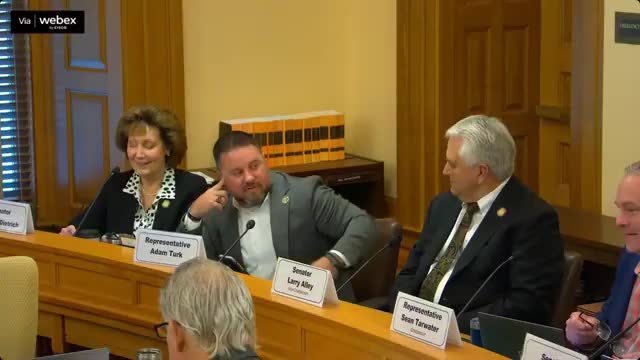Kansas legislative staff briefs committee on occupational licensing, scope and recent reforms
Get AI-powered insights, summaries, and transcripts
Subscribe
Summary
Legislative research described the variety and limits of occupational licensure in Kansas, recent expedited-licensing reforms for military families and veterans, and the state's adoption of 14 interstate licensure compacts. Committee members pressed for clarity on reciprocity and implementation details.
Eric Adele of the Kansas Legislative Research Department told the Senate committee its memo titled “Occupational Licensing in Kansas” outlines the role of occupational licenses and recent state reforms. "Occupational licensure is just a system for granting individuals permission to practice a particular kind of business activity," Adele said, adding that Kansas administers about 100 license types through 21 credentialing bodies while acknowledging that exact counts are difficult to determine.
Adele reviewed reforms dating back to 2012 that expanded expedited credentialing — beginning with military spouses and extended in 2021 to more applicants — and said Kansas has enacted exemptions and other reforms across health and trade occupations. He also summarized Kansas's participation in interstate licensing compacts, noting the state has enacted 14 compacts to date.
The presentation said compacts are agreements among states that set common credentialing standards and enable members to streamline licensing across state lines, while leaving ultimate regulatory authority with each state. Adele described practical effects: the Medical Licensure Compact and other compacts have increased multistate licensing and mobility for health professionals, and the Board of Nursing data show an increase in multistate nurse licenses beginning in fiscal 2020.
Committee members asked about the difference between compacts and reciprocity and whether Kansas could pursue universal licensure. Adele and Senator Dietrich explained compacts involve pre-negotiated common standards and a commission that oversees administration, while reciprocity tends to be a case-by-case administrative process between agencies. Adele warned reciprocity can impose continued administrative burdens; compacts are intended to reduce those by resolving many issues before states sign on.
Adele also flagged practical implementation issues: some recently enacted compacts are not yet issuing privileges because states and compact commissions must complete administrative steps and data systems; background-check processes have delayed implementation for some compacts; and compact participation has reduced some state license revenue where multistate privileges replace single-state issuance.
Committee members said they wanted clearer counts of licenses and possible fiscal impacts before acting on further statutory changes.
Ending: The committee left open next steps to collect more detailed data and follow up with agencies that administer compacts and the Kansas Bureau of Investigation about implementation timelines.
